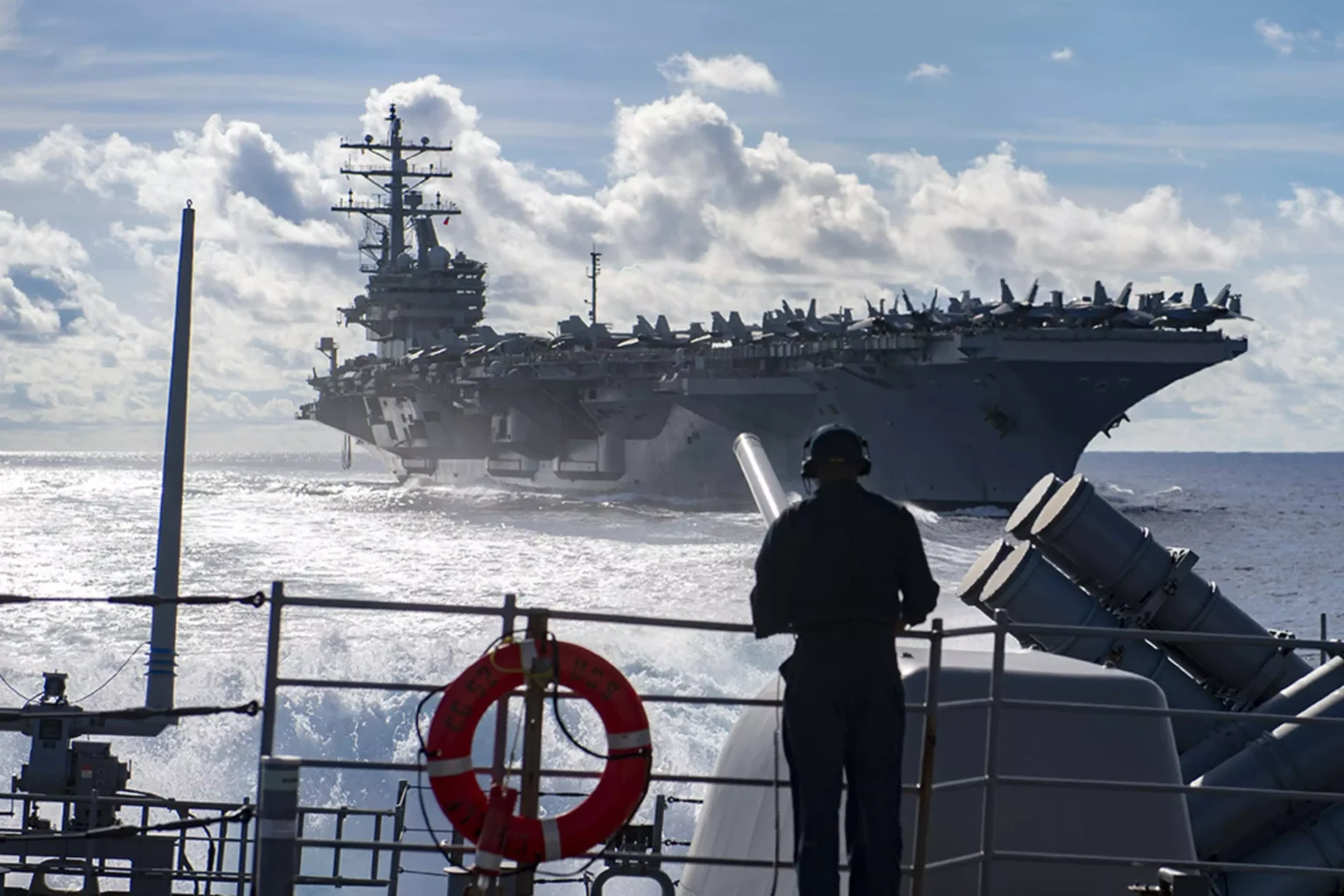Vice Admiral Brad Cooper, of the US Navy, describes the conflict against Yemeni forces in the Red Sea as one of the most important conflicts in recent decades, and highlights the deployment of about 7,000 US Marines in the region.
In an interview on CBS’s “60 Minutes,” Vice Admiral Brad Cooper, of the US Navy, stated that the conflict against Yemeni forces in the Red Sea is one of the most significant naval battles the United States has fought in decades, likening it to World War II.
Cooper, who is also the deputy commander of U.S. Central Command, confirmed that approximately 7,000 U.S. Marines have been deployed to the Red Sea.
According to CBS, the Navy has fired approximately 100 Standard surface-to-air missiles in response to threats from Yemeni armed forces’ missiles and drones.
Sovereignty of Yemen and the United States
Since mid-November, the Yemeni armed forces have imposed a blockade on the Red Sea and the Arabian Sea against Israeli ships as well as ships heading to Israeli ports, in support of the resistance in the Gaza Strip and the steadfast Palestinian people.
Following the joint US-UK aggression against Yemen, and the US designation of the Ansar Allah movement as a “Specially Designated Global Terrorist Entity”, the Yemeni armed forces gradually increased the level of confrontation to reflect the level of the US-British aggression against Yemen, while maintaining steadfast support for the Gaza Strip and the Palestinian cause.
Last week, Sayyid Abdul Malik al-Houthi, the leader of the Ansar Allah movement in Yemen, stated that the enemies of Yemen (the United States and the United Kingdom) acknowledge the impact of the Yemeni front in supporting Gaza against the Israeli occupation and its economy.
Impact on Israeli maritime trade:
- Sayyid Abdul Malik al-Houthi affirmed that the operations carried out by the Yemeni armed forces in the sea have contributed to hindering the movement of ships linked to the Israeli occupation, and are on the verge of crippling maritime trade.
- He also pointed out the continued rise in prices in Israeli markets as a result.
- He considered that the Israeli enemy was one of the biggest beneficiaries of maritime trade in the Red Sea and the Bab al-Mandab Strait, and that the operations of the Yemeni armed forces at sea have led to a strategic shift in the status quo in the region, which has greatly affected American and British influence.
Breaking US Hegemony:
- Al-Houthi stressed that the status quo that allowed the United States to threaten regional parties without accountability has been broken.
- He added that according to the Israeli enemy’s admission, the operations of the Yemeni armed forces have led to a near-complete closure of the Umm al-Rashrash port, and the supply of all food supplies to the Israeli occupation via the Red Sea and Bab al-Mandab has decreased by 70%.
Response to Airstrikes:
- Regarding the airstrikes carried out by both the United States and Britain on Yemen, al-Houthi said that 40 airstrikes were carried out on Yemen in the past week “and did not achieve their goal.” He added that the only solution is to stop the aggression against Gaza.
Non-targeting of European countries:
- Al-Houthi assured European countries that they are not targeted by the operations in the Red Sea, and that the US and British militaries have failed to protect ships linked to the Israeli enemy.
Despite all the above, the deployment of 7,000 US Marines in the Red Sea also affects maritime trade in that region. Their presence alone is enough to raise fears of a war that could burn any ship passing through there.
source: lualuatv

